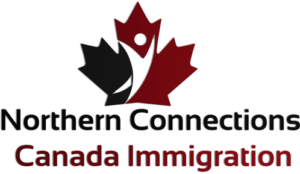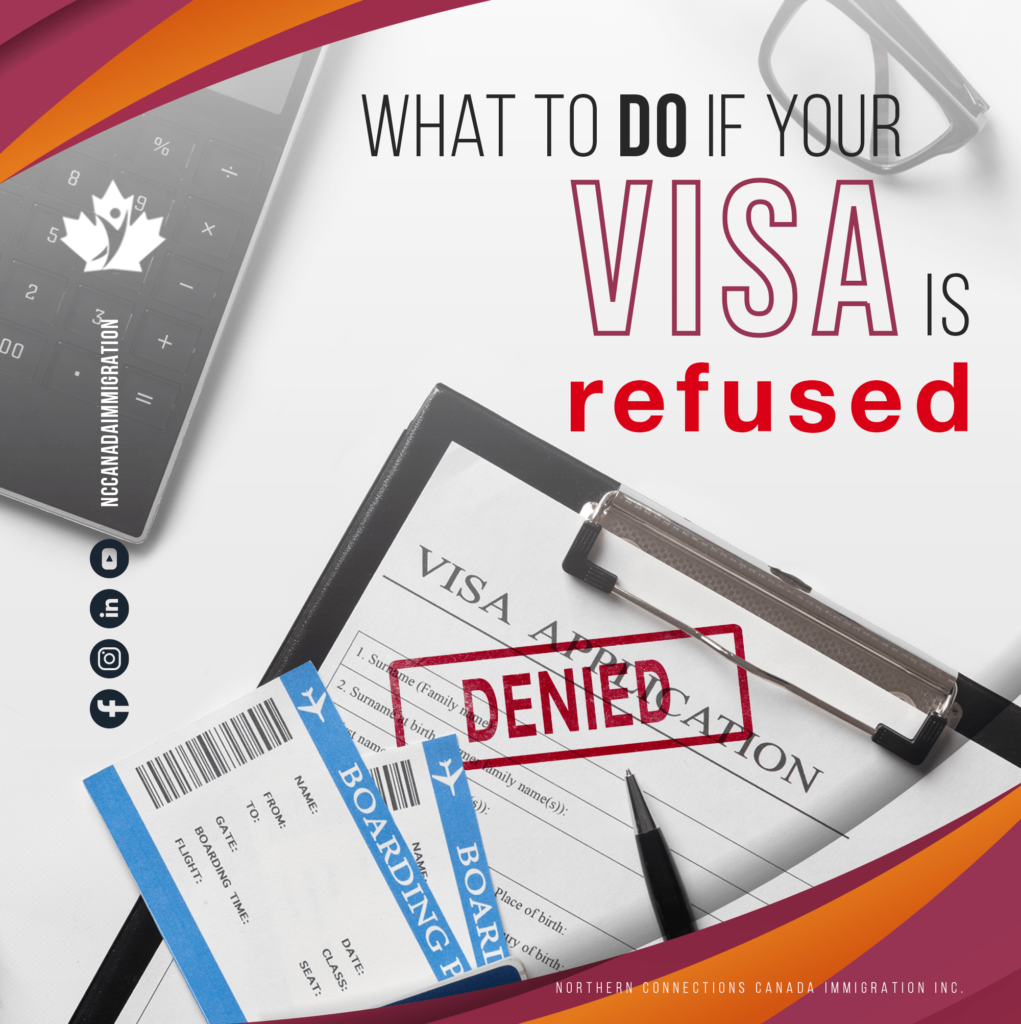Canada welcomed over 231,625 immigrants in the first quarter of 2022, and numbers hint at many more immigrants coming in 2023 and 2024. But now the question arises: With such a golden opportunity for foreigners to come to Canada, why is it becoming increasingly difficult to fulfill their Canadian dreams?
Well, one such factor is visa refusal! The application process has become more complex and rigorous with the increasing number of people and visa backlogs. Visa refusal can significantly impact future plans due to the lengthy processing times for different types of visas.
To increase the chances of visa acceptance, the best thing is to work with an expert Canadian immigration consultant that has experience in handling these matters.
What are the Top 10 reasons for visa refusal?
There are various parameters based on visa authorities deciding to deny a visa. It depends upon the specific requirements of each visa type. Some of them are listed below:
- Failure to produce documents: Foremost reason is failure to provide accurate documentation that verifies a person’s identity and credibility. Double-check the documents, as it will save last-minute hassles and make the visa process easy and precise.
- Inappropriate visa category: Sometimes, applicants place themselves under an improper visa category, leading to their ineligibility. Pay utmost attention to the type of visa and fulfill the conditions attached to it to avoid visa rejection.
- Insufficient revelation of immigration issues: Disclosure of prior unlawful or immigration issues is necessary as it significantly affects the applicant’s visa application. In this regard, the applicant must refrain from prohibited activities per specific visa categories.
- Non-disclosure of appropriate financial resources: Immigrants must disclose the necessary financial resources to cover their stay and travel to Canada. The applicant must reveal the accurate sources of income, be it parents, sponsorship, or loan obtained from domestic banks.
- Failure to adhere to security requirements: Visa applicants must provide a criminal background to prove that their activities comply with international security standards.
- Visa interview: Failure to properly communicate the purpose of the visit, supply relevant information and showcase disrespectful behavior during the interview process will result in a negative visa application outcome.
- Health requirements: An applicant needs to fulfill the medical inadmissibility threshold. It includes immigration medical tests to prove that a person’s health condition does not demand excessive health or social service or endanger public health and safety.
- Intention to stay in Canada: Visa officers enjoy discretionary power to refuse a person’s application when their intentions to move to Canada is not lawful and bonafide. Therefore, the applicant must have a strong travel history and effective ties with their country of residence to increase their visa approval chances.
- Inappropriate documents: The visa applicantshould submit accurate records to the visa authorities. Always counter-check the format and validity before submitting the documents for visa acceptance.
- Not disclosing the travel history: If the applicant has a history of overstaying(without providing concrete reasons), withholding information, and concealing the previous travel abroad, and it comes to the attention of an immigration officer, the visa application may be denied.
Getting a visa refusal notification can be overwhelming, so a licensed immigration consultant would be the biggest asset in obtaining a valid visa application.
What steps need to be taken if a visa application is refused?
IRCC provides distinct reasons for the rejection of visa applications. However, comprehending them requires a lot of knowledge about the frequent updates of immigration rules and laws on visa rejection.
We understand that getting an application refused or returned is frustrating, but the visa applicant must not lose hope, as they still have other alternatives to apply again. Here are four essential steps that the applicant must remember before taking any further decision concerning their visa application:
- Find the reason for refusal: First, identify the adequate reasons behind the refusal of the visa application and obtain a copy of the general case management system(GCMS) notes taken by visa authorities as mandated by the access to information Act.
- Review the GCMS notes: The visa applicant must meticulously review and analyze the GCMS notes, which will be their basis for the judicial review. Entrust an experienced Canadian immigration lawyer like Northern Connections Canadian Immigration to help tackle this daunting task and to facilitate the process as effectively as possible.
- Challenging of refusal decision: Having specialized knowledge about natural justice theories, rules related to judicial review, and procedural rules about the Federal Court of Canada aids in ascertaining whether the visa applicant can challenge the refusal decision.
- Prepare judicial review application: Lastly, the Federal Court of Canada can entertain a case against IRCC. Therefore, prepare a significant case for immigration-associated judicial review applications if the applicant is not satisfied with the outcome of the appeal. It can be done by proving that immigration officers acted outside their jurisdiction or against the law.
Refusal of visa application vs. Return of visa application
Checking the outcome of the application, whether it was refused or returned, will help them overcome minor roadblocks and streamline the procedure in the correct direction to apply for the visa again.
Refusal: The department refuses the visa application when they determine that the visa applicant does not meet the requirements for the type of visa the applicant has applied for. It includes refusal on the grounds of criminal admissibility and medical or security conditions of the visa applicant. The applicant will not get a refund for the government processing fees in case of visa refusal.
Return: The visa application can be returned to the applicant if authorities find out they have not provided sufficient documentation to prove their eligibility. Another common reason is when the quota for the applied program has reached its limit. The applicant will receive a refund for the government fee paid.
What are the three options following a visa refusal?
Having discussed the reasons for challenging a visa refusal, let’s examine the three options available to an applicant.
File an appeal: The applicant must appeal to the Immigration Appeal Division for the refused application. The appeal application is a request to reassess the case and effectively demonstrate that the decision to reject the visa application was wrong.
Request for reconsideration: Another course of action the applicant could request is to reconsider their application. Reconsideration is necessary in cases where the reason quoted by the immigration officer was “misinterpreted or incomplete information.” The application may be approved after the immigration officer accepts the reconsideration request.
Re-applying: Final alternative is to identify the pointers from the initially rejected application and make specific amendments accordingly. The applicant can also submit the professional submission letter, along with all the documents suggested by the immigration officer.
What are the re-application procedures if the visa is denied?
Re-application for Work Visa
A foreign national on a work permit in Canada must find the reasons in the generic refusal letter. Usually, while granting work permit applications, a visa officer scrutinizes the integrity of the working certificate and the genuineness of the offer of employment. Disclosing the prior history of refused visa applications, adherence to work permit conditions, and the prospective employer’s compliance with obligations towards workers are some of the other mandatory parameters that must be kept in mind while re-applying for a work permit in Canada.
Re-application for Visitor Visa
Upon being denied a Canadian visa, the applicant must re-evaluate the factors behind the refusal. Based on this, they can either appeal a refused tourist visa or re-apply.
The applicant may re-apply after correcting any mistakes in their original application and furnishing any additional information. However, if there were no mistakes with the initial application and it was an error on the visa officer’s part, the applicant is eligible to appeal.
Re-application for Student Visa after rejection
There may arise situations wherein the visa officer is not convinced that the proposed study course program in Canada is not suitable for the career or future plans of the visa application; therefore, they should be satisfied that the applicant’s education in Canada will open the doors of opportunities in their origin country.
A student visa is a temporary visa with a fixed validity period. Applicants must provide proper documentation for returning to their origin country. To ensure that the application will not reside in Canada after the expiry of the study visa, the authorities require that all applicants provide proper papers specifying their intent to return.
It is essential to note that the application will be evaluated individually and per study permit criteria. If the application did not have such information or documents mentioned above, the applicant can include them and consider re-applying.
Tips to avoid Canadian Visa Rejections
Visa rejection can be a frustrating experience, but it is always advisable to avoid any errors that could lead to the rejection of the application. Here are some tips to prevent a denial of a visa application:
- Consultation with an immigration professional: Their vast experience and assistance will be immensely useful while applying for a Canadian visa, as they have dealt with multiple cases of visa rejection.
- Identification of type of Visa: Identify the type of visa the applicant is applying for and prepare the application with all required documents accordingly. An incomplete application or documents is a sure-shot way to ensure that the application is rejected, so it is vital to avoid that.
- Prepare a medical history: Individuals who have a pre-existing medical condition or do not pass a medical exam can be deemed medically inadmissible to Canada if the authorities believe they pose a threat to public health.
- Applying online: While applying online, be sure to answer all questions on the CIC website.
- Obtain police clearance: Applicants must prove they have no criminal history. Understandably, no country would want a citizen with a past criminal record.
- Statement of Purpose: Clearly state the intention to get the visa through an accurate statement of purpose. An SOP is an essential part of getting a visa approved for Canada. An assertive, straightforward, and brief SOP improves the chances of visa approval.
- Financial Assistance: Provide appropriate documentation for the sources of financial assistance.
We are here by your side!
If you are facing a visa refusal, your best course of action is to navigate its shortcomings and get your application and notes examined by an immigration lawyer as soon as possible since you have thirty days to appeal your refusal of a Canadian visa, so be proactive about your steps and activities for the visa re-application process to ensure you do not lose the opportunity to apply for your visa again. We also offer Canadian visa refusal management services.
With northern connections Canadian immigration, you can be assured of a FREE profile evaluation, a completely personalized roadmap to start through your Canadian dream, and handle the entire immigration process for you while all you do is pack and shop for this once-in-a-lifetime journey!
The Team at Northern Connections Canada



